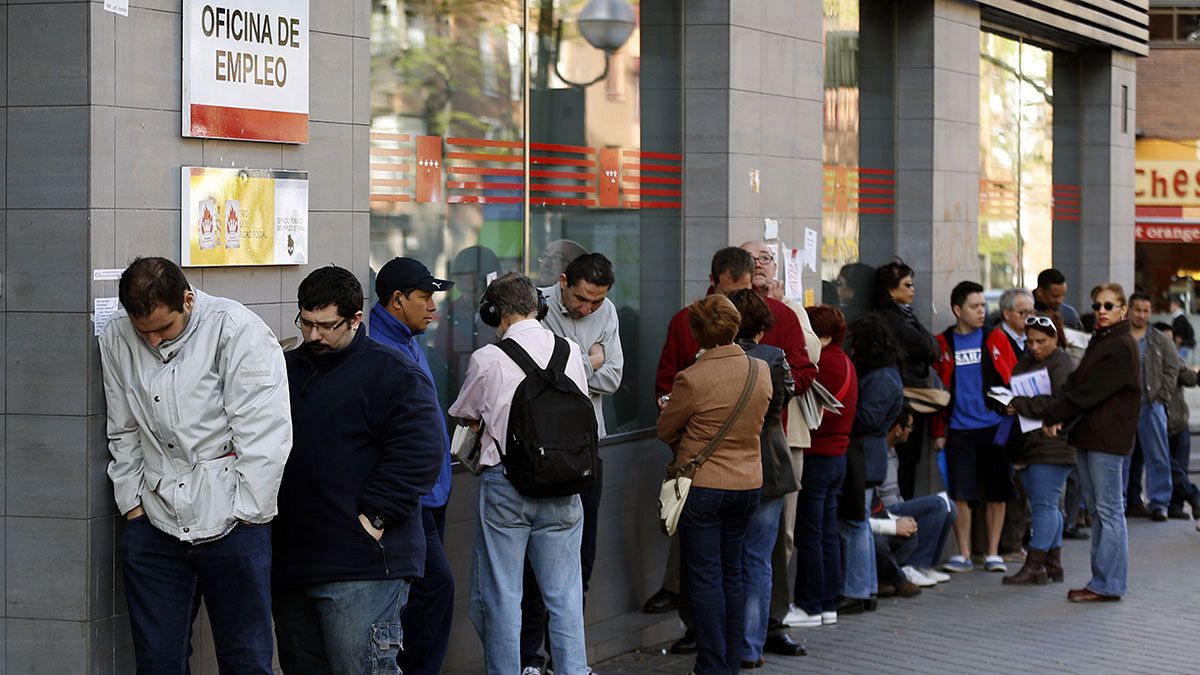Spain, France and the UK have all been hit by soaring underemployment, new figures reveal.
The data, released by Eurostat, shows more than 400,000 extra people were classified as underemployed in Spain in 2013, compared with 2010.
Underemployment is defined as when a part-time worker (aged 15-74) desires a full-time position but cannot find it.
France and the UK saw increases of 325,000 and 237,000, respectively, over the same period, against an EU-wide hike of 8.5 to 9.9-million. Germany saw a fall from 2.2m to 1.76m over the three-year period.
Nearly three-quarters of those in part-time employment in Greece, 72%, want more hours than they can get. Meanwhile more than half of workers in Cyprus (59%) and Spain (57.4%), are considered underemployed.
Some economists view underemployment has a good sign, reasoning a high-level of part-time work is good, because it means people are working rather than being a burden on the public purse.
But critics say underemployment can put a strain on people’s finances and hit the career prospects of the young.
Underemployment in EU | Create Infographics
Jacob Mohun Himmelweit, from of the New Economics Foundation, referring to the situation in the UK, said: “There are worryingly high and rising levels of underemployment in the labour market. As well as the squeeze people are feeling on their wages… people are being squeezed on hours too.
“Many workers have only been kept from joining the unemployed due to this squeeze on their abilities – they are unable to reach their full potential and get the sort of positions or hours of work they would like.
“The recession has meant that taking any job available, even those with lower pay and fewer hours, has been the only possibility for many.
“Being underemployed carries a huge pay penalty that puts a real strain on people’s finances. It can also cause significant longer-term career damage; particularly worrying for the 1 in 5 young people aged between 16 and 24 currently underemployed.”
Geraint Johnes, director of The Work Foundation, said: “While, in a typical recession, the labour market adjusts by means of a reduction in the number of jobs, this time much of the adjustment has taken the form of a reduction in the number of hours that workers work on average. The upside of this is that more people have remained in employment. But there are downsides too.
“Many people are finding that they are unable to work as many hours as they would like. Part-time employment has increased, but many of these part-time workers would like to work longer hours (for pay) than are currently available to them. “Alongside this, there has been an increase in the incidence of unpaid overtime, a phenomenon that appears to be linked to fear in the labour market – workers work longer hours despite not being paid for them because they fear that they might otherwise be without a job.
“Moreover, in the UK there has been a particularly dramatic increase in self-employment – much of which is concentrated amongst older workers, and involves working less than full-time and for relatively low levels of remuneration. Taken together, this evidence suggests that, despite the recovery in aggregate employment levels, there is still plenty of spare capacity in the labour market.”
